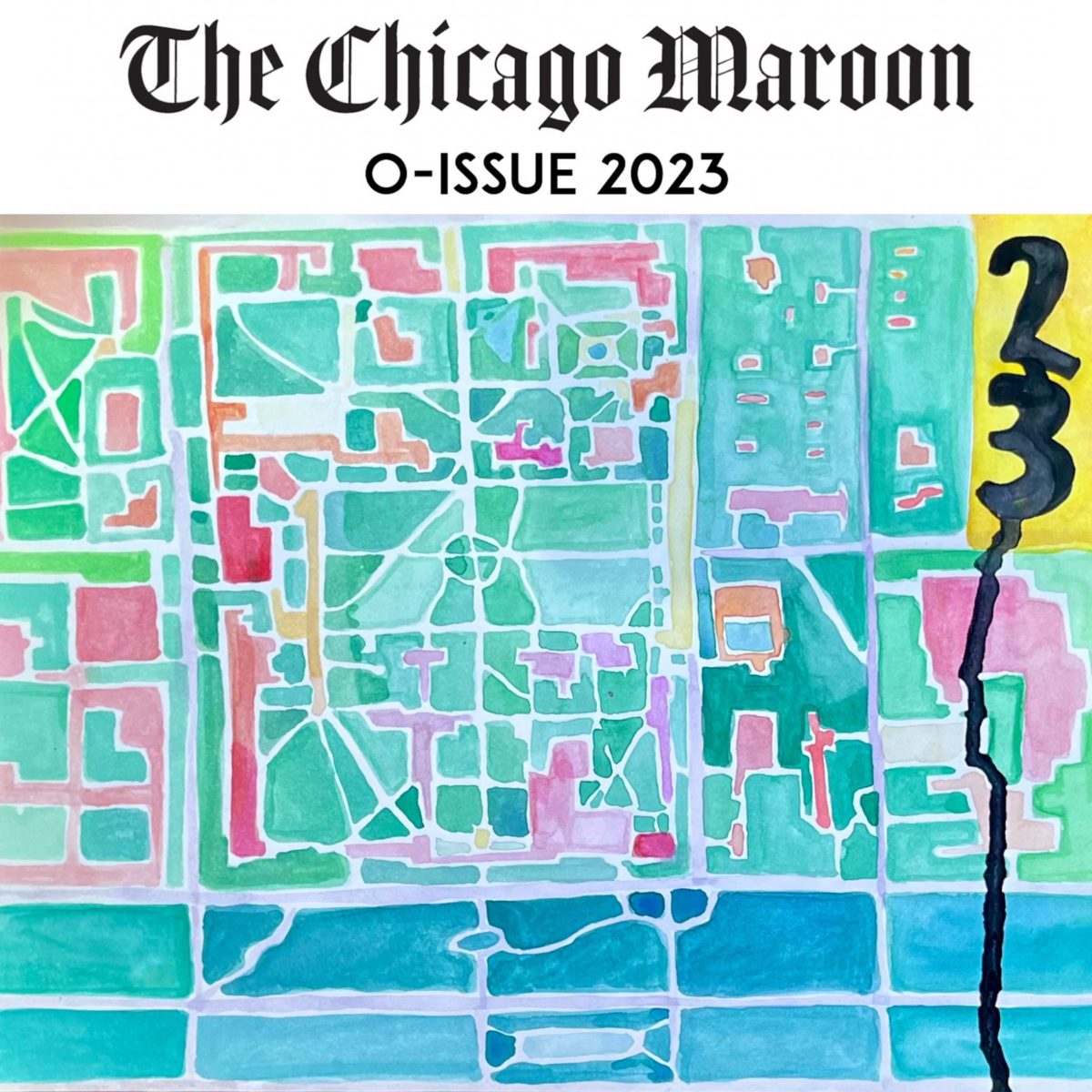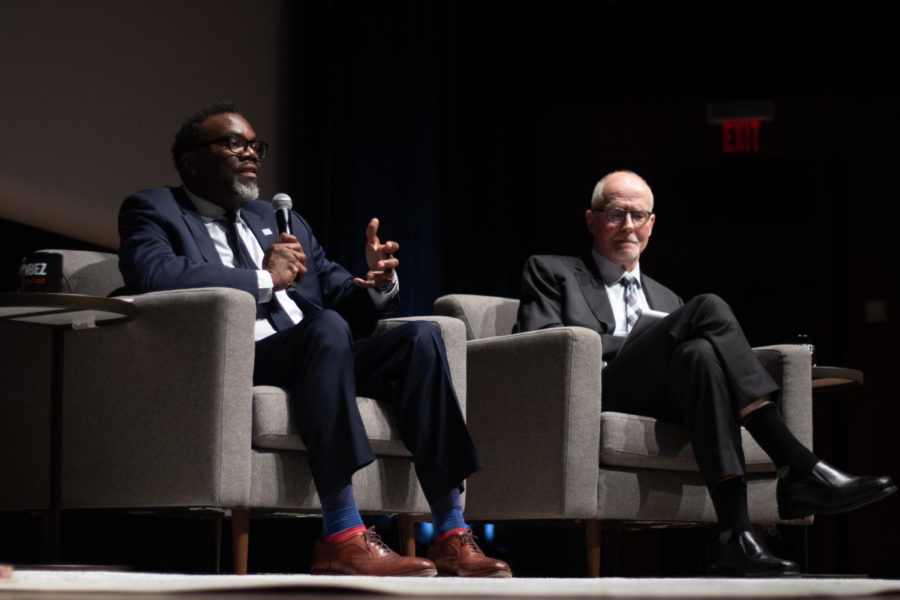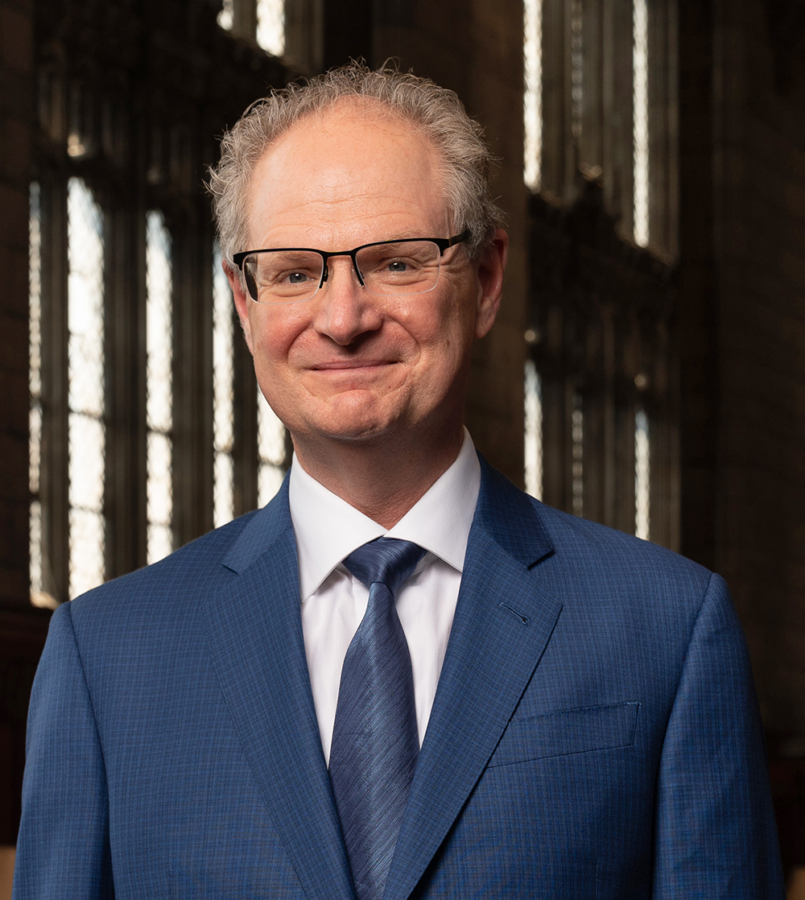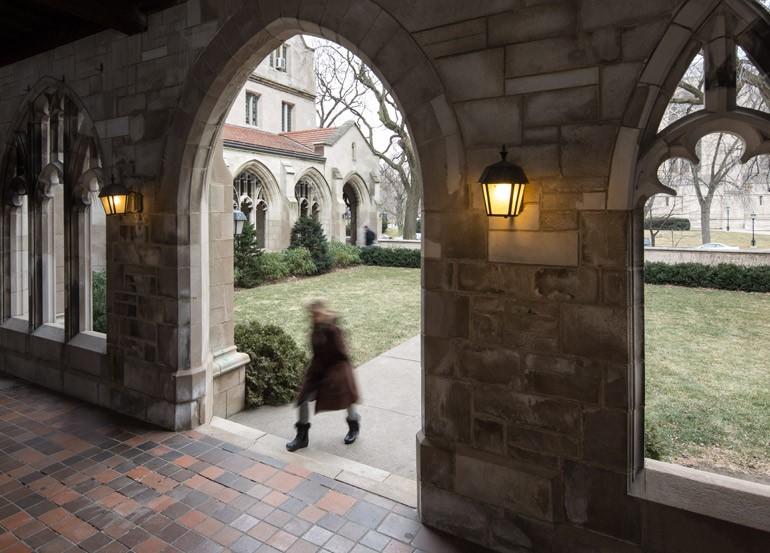If there’s a maxim for the Core, it’s this: If you’re learning how to think, you’re not learning the subject. And if you’re only learning the subject, you’re not learning how to think.
Students entering the Core’s humanities and civilization sequences with disinterest will not leave with a newfound passion for The Odyssey or the Reformation. With any luck, they will grasp argumentation and research—they’ve learned “how to think,” as the Core’s webpage puts it—but no holistic appreciation for literature and history. The concept of the Core is noble, but if its goal is to embolden its students with robust interdisciplinary perspectives, subject knowledge is as important as appreciation. Even with several updates in the past century, the Core still remains a relic of the 1930s — hardly a reflection of the current academic zeitgeist.
We don’t think every course has to be back-breakingly difficult, especially when many students are not placed in classes they want, but it is time to create a Core that lives up to its professed ideals while reflecting the realities of the UChicago student of today.
One of the biggest issues surrounding the Core isn’t even within the courses themselves; it is how students pre-register for classes, oftentimes causing headaches and anxieties for students long after they’ve completed their Core requirements. The system functions much like this: Students register for four to five classes but place them in order of preference. The more they are interested in a class, the higher they place it. If students place a class high enough, they are able to enroll. However, this is not always the case. For instance, if students have several classes they need to take in a certain quarter, only one can be their number one choice, leading to placements in other classes they do not want or, in the worst case, not getting any of the classes they want.
These issues are completely divorced from the stark differences in professors students that are taking the same course can get. Each teacher is their own individual, so differences between them are inevitable. However, these differences can lead to varying levels of difficulties and experiences that can color a student’s time in the Core, possibly even diminishing their interest in a subject they might have been neutral towards.
Humanities
In the summer, incoming first-years rank their preferred humanities (Hum) courses in a separate registration system and are then required to complete at least two quarters of the sequence in their first year. However, how effective are the humanities sequences in giving students an idea of what purposes UChicago’s Core is meant to serve?
Several of the humanities sequences, along with those in the social science and civilization sequences, attempt to pursue the Core’s goal through very outdated curricula.
Firstly, the readings required in many of the classes fail to include significantly more contemporary works, featuring more from the early 20th century. Though there are centuries-old texts that are important to be studied and be knowledgeable in to fully engage in academic life at the College, the curriculum being taught in 2023 must reflect our current world and social climate. In other words, what good is knowing how to think when a student is not given the breadth of perspectives from their current world in order to form original thought?
For example, on the syllabus for HUMA 12300-12500: Human Being and the Citizen, some sections have no female authors in the first two quarters, boasting works exclusively from the Western Canon. Diversity in college classrooms have skyrocketed over the past century, and these courses must change to reflect that shift. How can students, most of whom cannot identify or relate to most of the works they read in their required first-year humanities sequence, be expected to thoughtfully engage in the subject thereafter? In order to be more engaged classroom participants, shouldn’t the newest students on campus be able to see themselves in the Core?
Social Sciences
The social science (Sosc) Core has many of the same strengths and weaknesses as the Humanities, both being discussion-based sequences geared towards developing one’s written and oral argumentation—the stuff that a marginally less pretentious school would call an English Gen Ed. UChicago’s Sosc program tries to distinguish itself from peer schools’ general education requirements in its “commitment to approaching critically matters of social formation and change.” For the most part, it succeeds. SOSC sequences like SOSC 11400-11600: Power, Identity, and Resistance and its inward-looking counterpart SOSC 12400-12600: Self, Culture, and Society have long been considered among the most enriching academic experiences at the University.
Unfortunately, the same can’t be said of every sequence. Options more concerned with empirical methods, like SOSC 13100-13300 or 13110-13310: Social Science Inquiry or SOSC 14100-14300: Mind, are criticized as being “not real Soscs” because they’re not comparably critical or conceptual. The development of social thought in economics or psychology is a valuable topic, but one could find an experience equivalent—or superior—to the cursory Sosc overview in departments related to those courses (e.g. statistics, economics, HIPS, etc.). In remodeling existing sequences or introducing new ones, those designing the curricula ought to ask themselves what makes a Sosc sequence a necessary, unique experience that a student couldn’t find elsewhere.
Civilization and Arts
The civilization (Civ) and Arts sequences face similar challenges: they fail to accomplish an appreciation for the subject at hand. Unless students are majoring in something related to Civ or Arts, they often view these classes as the “easier part of the core” leading to less meaningful engagement since the knowledge barrier to entry is lower than, say, a biology course. For Civ, many students study/memorize historical events in order to synthesize them together for essays, while Arts courses simply require students to discuss and make art, both of which are experiences or skills most students have had and are more accessible. In turn, these facts lead to apathy and fewer fruitful discussions in the classroom. This sentiment represents shifting attitudes toward the value of a Core-centered education. As more and more American universities, including UChicago, optimize their academics to be more pre-professional, there is something remarkable about a curriculum that prizes learning for the sake of learning. The Core is supposed to teach and provide students with an appreciation for subjects and methodologies they wouldn’t study otherwise, but it also requires a buy-in from students to be enthusiastic learners in these endeavors.
Some of this attitude comes from the Core’s reputation as an almost Sisyphean task for students to complete—and some of it comes from the handful of Core professors who admit they want to be anywhere else besides engaging with the young scholars in front of them. Even the most enthusiastic students stand to lose their passion for a course if their professor treats its material as disposable. Reading Dostoevsky may tell us about crime and punishment—but to construe reading his work as a punishment in itself is an even more insidious crime.
Natural and Mathematical Sciences
The natural sciences Core, often called the biology Core, teaches us that many present-day, life-saving antibiotics were discovered in bacteria. So too can we discover a solution to the problems in the natural and mathematical sciences Core sequences in a few unique classes that enable students to appreciate the scientific process and its generalizable lessons without sentencing them to a quarter of arduous memorization.
In Inquiry-based Exploration of Biology, for example, instructors have shifted from a grading system based on multiple papers or exams to a project-based approach. While readings, classroom discussions, and labs still exist — as they do in a majority of Core sequences — this course attaches the course grade to a quarter-long project, which students develop over time with the support of the instructor or teaching assistants.
We believe that this project-based approach offers powerful solutions to a number of present problems in the Core — particularly in the sciences. Instead of forcing students to drill ambiguous pathways or regurgitate highly specific enzymes for the sake of a single exam, the project-based approach encourages students to engage with the subject matter on their own terms—in accordance with their own interests—practically begging for an increased appreciation for the material. Further, the greater instructor input makes it harder for students to fall behind, while also providing students with the encouragement and insights that actually support students in diving deeper. In fact, one could imagine a system in which final project grading is tied more closely to the instructor’s sense of how much effort and engagement the student has invested into their project, relative to their prior knowledge. This is fairness. It is at least certainly more fair, and more equitable, than expecting students with totally different backgrounds to perform the same way in the classroom.
Project-based learning in the sciences also speaks to the Core’s purported aim of endowing students with the skills found in specific disciplines that ultimately can be applied to any discipline. Students, through a single science project, learn to answer their own questions, grapple with failure and the unexpected; how to collaborate with their peers in group projects to achieve a unified goal; and how to articulate their findings with confidence. These skills are valuable outside of research careers— and certainly more valuable than writing out the steps of glycolysis under time pressure.
Then again, some classes and learners are better suited to traditional pedagogical approaches. We believe that by the time they enter the College, students know by now what learning style works for them, so the Core should empower them to choose the education model tailored to their personal preferences. Once again, this comes down to enhanced transparency. As with Hum and Sosc syllabi, the curricula of all courses—including those for the rest of the Core—should be made available so that prospective students can choose the courses that best match their personal goals and learning styles. Making students aware of the variety of paths on offer will in turn smooth their journey of self-discovery—even for those with no destination in mind.
Another solution would be an expansion or reinvestment in optional student support systems, like the humanities writing seminars, the math tutorials offered in the Math 130 sequence, and the Collaborative Learning in General Chemistry (CLiC) and Collaborative Learning in Organic Chemistry (CLOC) study groups organized for general chemistry and organic chemistry students, but they currently lack investment. In particular, CLiC/CLOC fosters group skills that not only capture the collaborative spirit of science but also are practical requisites for any workplace. We’re curious why these measures are so limited because expanding these support networks would allow students to help themselves even without the more radical curricular changes we propose.
Not only do increased student support in STEM courses help students succeed, but they also democratize science itself, taking small steps toward dispelling harmful notions of its accessibility and creating generations of thinkers who naturally bring to the field much-needed diversity in perspectives. After all, math and science don’t have to seem as difficult as we make them out to be. While the detail-oriented nature of STEM classes perhaps expects a certain type of mastery of a subject not expected in some other classes, the notion that science and math are inherently more difficult is oftentimes a damaging one. It makes the field less accessible to many, and it protects the STEM department from pushing for increased equity. The fact that this myth is propagated through the Core is problematic, so employing the variety of pedagogical approaches and support systems for which we’ve argued can help counter this misconception we’re so often fed.
Potential Solutions
The question that emerges after such a full, and perhaps tedious, walkthrough of the Core’s present failings is: How do we make the Core work for students? How do we restore the Core to its goals of teaching students how to think and bring an interdisciplinary perspective into further studies?
While each branch of the Core features its own sets of aforementioned problems, they all loosely fall under the category of the nonstandardized grading system that stems into the larger issue of students picking Core classes based to some degree on perceived ease in attaining an A rather than genuine student interest. Remedying this problem of the culture of the Core features attainable solutions.
Core classes could be graded on a Pass/Fail scale, enabling students to read texts outside of their comfort zones without the pressure of receiving an A. It would even encourage students to choose courses that spark their interests, not just those with the most generous professors who will give out “easy As.”
Furthermore, the University can implement a class geared specifically towards teaching students how to think via a course that builds towards a final project similar to those students will encounter in major classes. Each step of the project would teach students “how to think” and offer in-depth feedback on that specific part of the project in a way many higher-level classes will often gloss over in favor of surveying solely the end product. This research-oriented class could manifest into two options: one geared towards humanities-driven writing and the other highlighting important aspects of scientific writing. For the humanities research focus, stages could include how to pick a broadly specific research focus or effectively gather collegiate-level sources, modeled in the vein of humanities seminars/tutorials. For a STEM research course, steps could be more formalized versions of how CLiC/CLOC study groups function.
Final Thoughts
Though its lofty ideals might claim otherwise, the Core doesn’t work for many students. It’s too hard to reliably get the classes you want in a certain quarter, and it’s too easy to become disinterested even if the class you really wanted doesn’t live up to your expectations. In each of these Core subjects, we see the specific pitfalls that prevent students from appreciating the holistic wonders of learning and academia. The unifying experience that we go through during the Core is a hallmark of one’s time at UChicago. Shouldn’t this process be remembered as an enriching adventure instead of a challenging ordeal? It’s time for a fix.

















Zachary Royce / Dec 8, 2023 at 12:26 pm
If you want the ‘holistic wonders of learning’ (whatever that means exactly), Amazon Books or a public library is enough. The Core is the essence of the University of Chicago experience and central to the ethos of liberal education. This editorial reads like it was written by someone attending U of C because they got rejected from MIT or Harvard; someone who thinks they don’t need to read Adam Smith because they have absorbed through a lifetime of cell phone culture the common misconception that his role in history is advocacy and apology for capitalism when in reality he is the Newton of economics, teaching us primarily that their is a mechanics to the operations of the market, and one of the first pioneers of social science, almost the first to discover in a non-mystical way that not just humans but humanity itself is an organism; someone who thinks they don’t need to read Plato because modern academic (i.e. analytic) philosophy looks upon his literalistic idealism as obsolete, without understanding that Plato conveys the very essence of what is important about philosophy, that reading philosophy without starting at Plato is like learning about love by going straight to porn and masturbation without ever meeting other people or thinking about family. You have the rest of our your lives to specialize in whatever you want to learn. Believe me, as smart as you think you are now, and may be by comparison with the bell curve for your peer group, you really don’t know as much as you think you do, and this is the time to sit back, shut up for a second, and listen to what the greatest thinkers in history had to say before you set out on your own.
Zach Royce, AB 1997, (Ashland, OR)
LP / Sep 22, 2023 at 11:26 am
Agree: pre-reg could more accommodating and more sophisticated given the number of priorities in one’s schedule.
Consider: the college could better balance the amount of popular and highly demanded HUM and SOSC courses against the less popular topics. (AKA supply and demand- a novel concept for an Econ-heavy school).
Understand: “You can’t always get what you want, but you’ll find sometimes, you get what you need.” Reading things that are new, strange and/or objectionable are part of intellectual diversity (a good education) and add to one’s critical thinking skills.
JR SEA / Aug 16, 2023 at 6:08 pm
Typical woke gibberish from the Maroon.
The HUGE problem with The College is that these woke imbecile authors managed to get by Jim Nondorf’s admissions staff.
Improve The College, find out the woke snowflakes who wrote these “ideas” and send them to Brown where they can finger paint, navel gaze, pretend to be an infinite number of genders, join an ANTIFA attack, or join a BLM city burning and looting event, and finally find a safe space to hide from microaggressions.
Mr. Nondorf, please, please, please weed out these mistakes from repeating in The College.
CN / Aug 29, 2023 at 7:13 pm
Yes the article is drivel. No we should not reject every progressive, or generalize poor logic to violence.
Jack S / Aug 31, 2023 at 3:07 am
What does any of this have to do with the Core curriculum or the above article?
Inane drivel.
Jack S / Aug 31, 2023 at 3:15 am
Typical reactionary nonsense comment by a troll. Keep yelling, I’m sure Mr. Nondorf will hear you out.
Gregory Caesar / Sep 2, 2023 at 5:53 pm
The type of censorship you’re advocating is antithetical to the Chicago Principles. Ironic, given that you’re an expert on this stuff and all.